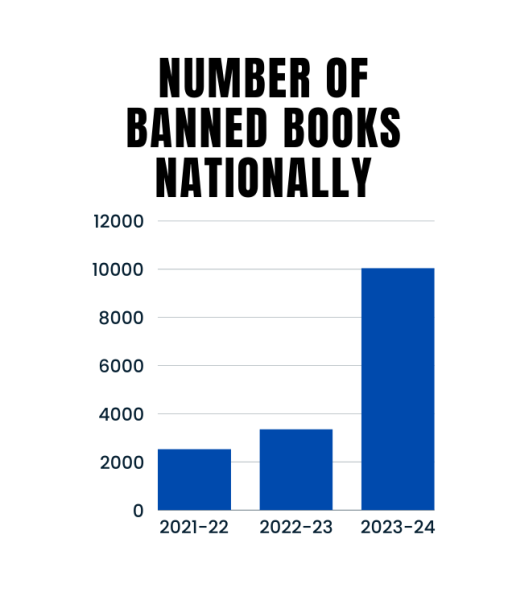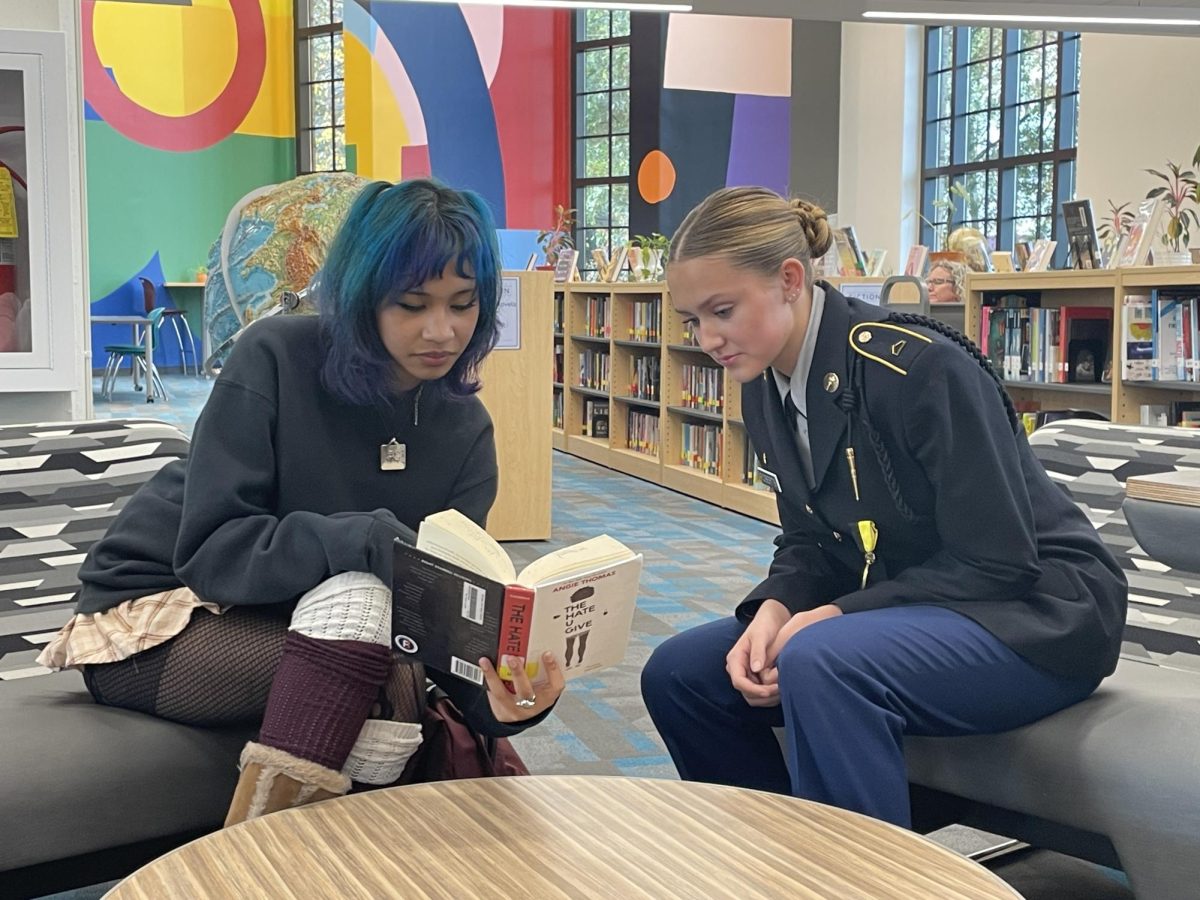Over the past three years, the rise in the number of banned books in Georgia has increased by about 80 percent, mainly pushed forward by conservative lawmakers. After the 2024 election, Republican wins at both the state and national level are raising concerns about the future of book banning.
“Most books that are being banned have to deal with LGBTQIA+ issues, diversity and sex, but teens are being exposed to these topics with or without access to these books,” Ivy May, senior and co-captain of Reading Bowl, said.
Ninth grade English teacher Desiree Carter believes books with controversial topics are critical for building empathy and teaching critical thinking.

“Books allow us to walk in other people’s shoes in a way that we don’t get in real life,” Carter said. “While I can’t change who I am or what I look like, seeing the world through other characters can bring realizations to me, so in that regard, literature is very important for building empathy between people.
Carter said that reading books with these sensitive topics can help students to understand diverse experiences, and allow them to apply them to their own lives.
“I’m not pro banning books; we get books that serve the community,” Midtown librarian Brian Montero said, “The community tends to want to have books that are going to represent a wide variety of people, especially in the Midtown Atlanta area.”
Books with controversial topics, specifically about marginalized communities, are often the books that are targeted for banning. May believes this can hinder learning.
“[In Reading Bowl], here is significant representation of most forms of diversity, which are typically books that get banned,” May said, “While the books on this year’s reading bowl book list are frankly too new to be banned, several from past lists have been banned. Of the 20 books on the book list last year, four have been banned, including“Ace of Spades,” “Angel of Greenwood,” “The Cost of Knowing,” and “The Magic Fish.”
Montero said books are often banned because of only a small portion of the story, causing the entire book to be deemed inappropriate.
“People often focus on the details that are the more explicit content without looking at the overall content of what the book is about,” Montero said. “A book might deal with something controversial, but in the context of the whole book, [those details] are there to enforce the overall theme.”
For many educators and students, engaging with controversial material is not about shielding students from the content, but providing a place for open discussion.
“Students can get value out of any book,” Carter said, “It’s important to think about it in context. Being able to come to that text and tease out the different interpretations of it. It’s critical to have conversations about topics that are often taboo or off limits to be able to sit with that discomfort.”
Montero suggests that a possible solution for mass banning of books is to have an open discussion about it.
“A panel consisting of students, parents, teachers and admin, to be able to have a discussion to come up with a guideline of what people feel comfortable with,” Montero said. “Rather than relying on national standards, which tend to be not effective, to meet our community to come up with our own standards.”
Carter said banning books stops important developmental conversations among peers.
“Banned books often feature characters learning about things that are considered taboo,” Carter said. “Banning the book shuts down the conversation. When students are able to read the books, they find a way to live through characters and conversation is open.”








